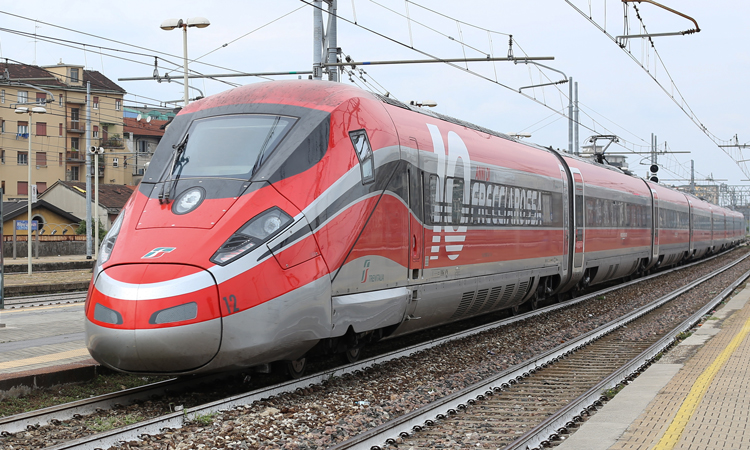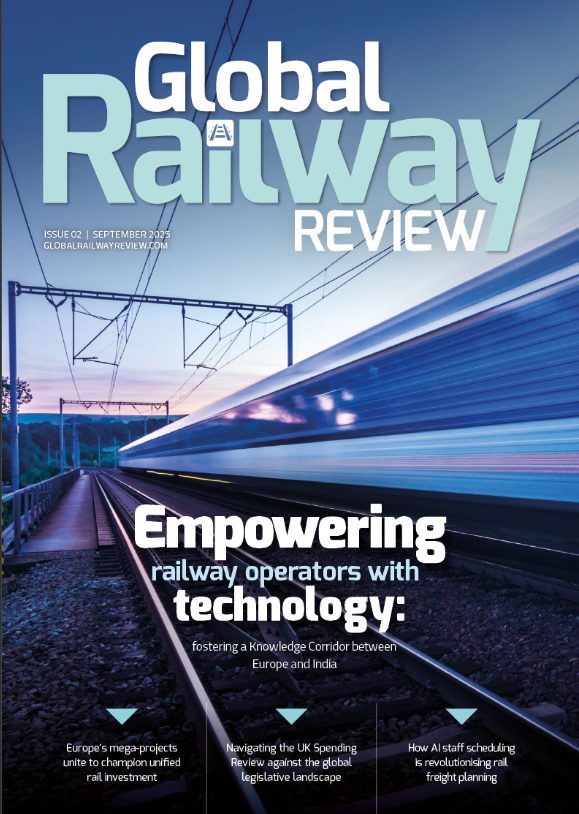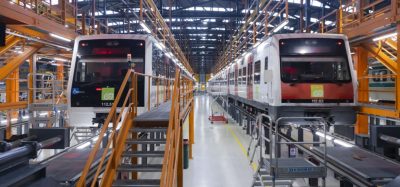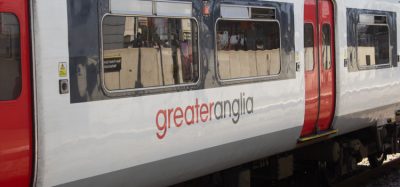Ferrovie dello Stato Italiane’s approach to sustainable transport
Posted: 28 February 2020 | Lorenzo Radice - FS Italiane Group, Valerio Birindelli - FS Italiane Group | No comments yet
Italy’s largest transport company, the Ferrovie dello Stato Italiane Group, is taking a sustainable approach both in its strategies and in its daily activities, with rail transport playing a key role in achieving wider company objectives. Lorenzo Radice, Head of Sustainability and Valerio Birindelli, Sustainability Expert, explain more.


The need to strike a balance between economic, environmental and social dynamics in favour of fair and sustainable development has become an increasingly important subject for both academic and public debate, as well as finding fertile ground in the corporate sphere.
The Ferrovie dello Stato Italiane Group, Italy’s largest transport company, is highly aware of how much it can affect people’s quality of life and natural balances by promoting mobility solutions for people and goods, designed to create widespread, solid and lasting value.
Companies have a role to play in making an active and increasingly significant contribution to tackling global challenges, and placing sustainability at the core of their business. One of the factors that is driving the shift from shareholder value to stakeholder value is the growing influence of citizens on corporate life. For example, when choosing goods or services to use or invest in, there is a clear (or sometimes hidden) intent to seek out environmentally and socially sustainable solutions, or to avoid investing in activities seen as negative by public opinion.
Transport is an essential, strategic element of a country’s economic development, while also being one of the sectors with the biggest impact on nature and the environment. Mobility is one of the most complex challenges that our modern society faces, now and in the future, as the increasing tendency to travel contrasts with efforts to reduce the negative impact on the environment and improve quality of life and health for both ourselves and the world we live in. Changing our daily mobility choices can bring benefits in terms of traffic, safety, pollution and emissions, improving our quality of life and reducing the risk for the environment.
Rail transport can play a key role in this. For example, travelling by train in Italy emits 75 per cent less CO2 on average than travelling by air, and 60 per cent less than by car.
The Ferrovie dello Stato Italiane Group sees building the specialised skills of our personnel, technological innovation and respect for the environment as the foundation for our ability to create value.
In recent years, the parent company, Ferrovie dello Stato Italiane, has been particularly active in promoting, steering, coordinating and facilitating environmentally friendly strategies, using models, rules, processes and checks designed to ensure effectiveness, at the same time as protecting the autonomy and independence of our subsidiaries. The FS Group Sustainability Policy sets out the principles for achieving our vision of implementing integrated and sustainable mobility and logistics services, and developing integrated and efficient transport methods and infrastructures.
FS Italiane has set up a system for reporting sustainability information, which is included in the annual Group Sustainability Report, published for the first time in 2008, and is now formalising a control system to ensure increasingly transparent reporting. Reporting, and the metrics it uses, is one of the main ways companies can find out how their choices are affected by the context they operate in, and how their own activities affect society, the environment, and the economy.
In 2016, FS Italiane set up a Sustainability Committee composed of the CEOs of the main Group companies and the Central Directors of the parent company. The committee is responsible for offering advice and proposals, prompting company management to consider the value of products in a social and environmental light, as well as financial.
The Sustainability Governance Model introduced in 2019 is designed to facilitate the transition towards a business model that is just as careful about the impact on the environment and people as it is about financial results. The model aims to constantly improve results, and sets out the governance and management processes for making sure sustainability issues are included in Group strategies, and putting any necessary measures into action.
Regarding stakeholder engagement, representatives from institutions, universities, associations, organisations and citizens have all taken part in periodic ‘stakeholder panels’ since 2013, where the FS Italiane Group encourages open discussion about ways that the Group could improve, which we then commit to following up on.
In 2018, stakeholders took an important role in defining long-term FS Group targets, up to 2030 and 2050, with the results being:
- Emissions: the FS Italiane Group aims to become carbon neutral by 2050, for both the energy purchased and produced by Group companies (including rail and road traction energy), and energy used for fixed sites
- Safety: the FS Italiane Group has set a 2050 target to become the best in class within Europe for safety, zeroing fatal events involving passengers choosing to travel on Group transport modes, employees, contractors and anyone else involved in the rail system. From 2015 to 2030, fatal accidents must be halved on ANAS roads
- Sustainable mobility: by 2050, the FS Italiane Group aims to increase the shift towards collective and shared mobility in Italy by 15 per cent, encouraging people not to use private cars. According to National Infrastructure and Transport Account figures, approximately 77 per cent of Italians used private cars in 2015, while only 17.5 per cent opted for more eco-sustainable transport (train, tram, cableways, urban and suburban transport). For freight, the FS Italiane Group target is to shift 50 per cent of transport to rail by 2050. National Infrastructure and Transport Account data also shows that 12 per cent of freight was shipped by rail in 2015, against 54 per cent by road.
The FS Group has successfully trialled sustainable financial instruments, issuing two green bonds (in 2017 and 2019) to purchase new energy efficient, recyclable and safe regional, high-speed and freight trains (€1.3 billion).
Seventy per cent of the latest green bond, issued in 2019 for a nominal value of €700 million, will be used to buy new regional trains, as well as HS Frecciarossa 1000 trains and rolling stock for freight transport (locomotives and wagons). The bonds met with demand 3.5 times higher than the offer. Total orders amounted to €2.5 billion, from 156 investors, 65 per cent of whom were from abroad. Approximately 47 per cent of orders came from investors committed to sustainability issues. All the projects funded by the green bonds will improve energy efficiency, reduce greenhouse gas emissions, and promote the shift to rail transport. This operation made FS Italiane the first Italian issuer to obtain certification from the Climate Bonds Initiative, a non-profit organisation that promotes sustainable finance as a tool to combat climate change worldwide. Financial markets have a strong focus on sustainable mobility, so much so that, according to Climate Bonds Standards, 61 per cent of the green bonds issued in 2017 were allocated to low-emission transport projects.
The process of integrating sustainability must also focus on the environmental and social impact of actions throughout the value chain. Sustainability clauses have been included in infrastructure works, train supply and procurement contracts for several years. This attention has allowed us to include high environmental performance vehicles in our rolling stock, such as regional trains, which have been modernising their fleet this year. The Group intends to continue to improve its sustainability profile by turning to the supply chain, assessing, monitoring and recognising suppliers who ensure significant environmental and social performance. After a pilot project conducted by Rete Ferroviaria Italiana (RFI), the Group will be setting up a task force on Sustainable Supply Chain Management and increasingly applying sustainability criteria in the supply chain.
The company takes a truly sustainable approach in its strategies and daily activities, with a clear sense of perspective, and to broaden horizons. The challenge is not simply to combine the economic and financial objectives of the company with social and environmental responsibility and the general principles of sustainable development, but rather to make sustainable action the real driver of development and value creation for all shareholders.
The challenge ahead will be to reduce the number of journeys made with single polluting vehicles, by prioritising clean alternatives and systems that, thanks to their physical and digital infrastructures, are able to manage door-to-door journeys effectively and efficiently.




Global Railway Review Autumn/ Winter Issue 2025
Welcome to 2025’s Autumn/ Winter issue of Global Railway Review!
The dynamism of our sector has never been more apparent, driven by technological leaps, evolving societal demands, and an urgent global imperative for sustainable solutions.
>>> Read the issue in full now! <<<
The rest of this content is restricted - login or subscribe free to access


Why subscribe? Join our growing community of thousands of industry professionals and gain access to:
- Bi-monthly issues in print and/or digital format
- Case studies, whitepapers, webinars and industry-leading content
- Breaking news and features
- Our extensive online archive of thousands of articles and years of past issues
- And it's all free!
Click here to Subscribe today Login here







